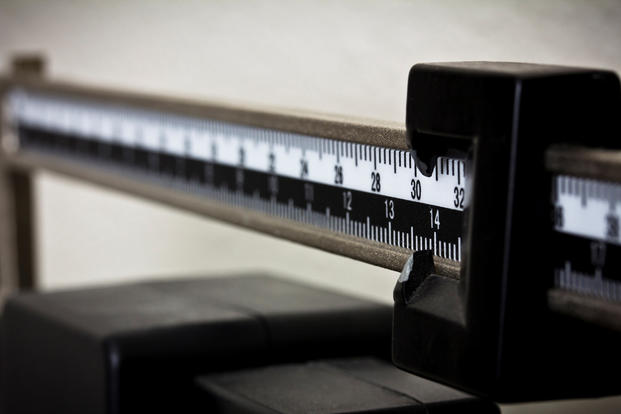In the military, police and fire services, getting injured can happen at any time. Depending upon the severity, it could be a few weeks, months or more than a year of rehabilitation and retraining. Here is a common email from a police officer who was injured on the job, was behind a desk during rehab and got too out of shape while recovering:
Stew, I have a quick question for you. I was injured at work and stuck behind a desk for a year. Well, I never bounced back to running 20 miles/week, weight training 3-4 times per week. In fact, I have not done anything now for over 18 months but want to get ready for my upcoming SWAT selection. After putting on about 70 pounds, every time I try to get back into it, my feet hurt, my knees hurt, well everything hurts. How hard should I push through this beginner phase? I have over a year to get ready, but things are moving very slow right now. Thanks, Ben
Ben, I say this all the time to people I see in the gym as well on email questions about Rebuilding the Fitness Foundation. Especially when we age into our 30s, 40s and 50s, recovering from injury and losing the extra weight from rehab inactivity can take more time that you think. But as with any recovery from injury or illness, be patient but persistent. You have to build the good habits of fitness and health again from scratch. So basically, treat yourself like a beginner.
Now that you are cleared by the physical therapists and doctors to start activity, do it. Anything.
More activity than normal. After a long rehabilitation period, walking, biking, elliptical machines, rowing, swimming or any other non-impact cardio activity is where you need to start again. Do not even think about running, especially if you have 70 pounds to lose. Walking will be tough as it is like you are carrying a 70-pound backpack with every step. At least your knees and lower back will feel that way, so limiting walking at first is recommended.
Resistance training. Getting back in the gym and lifting is great, but start off with lighter weight than normal, perhaps with a repetition and set count of 10-15 repetitions and 2-3 sets for the first few weeks. If you go into doing old weight-room workouts you did for years, you could reinjure yourself. Take it easy on the weight and repetitions, even the calisthenics.
Weight loss. This has to be your first goal, Every pound you lose will make everything else easier for you -- walking, calisthenics, running and just living (bending over, picking up equipment, walking stairs, etc.).
To do this requires discipline. Decrease your snacking while increasing the quality of food you consume. Make a food diary and find where the links are in your diet. It only takes a few days to realize the intake of peanut butter, drinks, snacks and the size of food portions need to be curbed. See Lean Down Plan for food planning ideas.
Prepare for SWAT Fitness (Special Ops). At this point, you are nowhere near this level of ability until you rebuild the foundation of fitness, lose the weight and focus on healthy eating options. But in as little as 4-5 months, you will be able to do many of the workouts required to advance into the special ops-level of fitness training programs.
Start focusing on the specifics of getting to the training by acing any competitive fitness test to get accepted. Then once you have that foundation, build upon that with any specifics to get through the training -- more running, rucking, weight-vest movements, obstacle courses, shooting, swimming, load-bearing exercises and higher-repetition calisthenics.
Once you get the weight down and regain the ability to move faster and freely again, then you can focus on the tactical fitness requirements of your future goals. Good luck with your journey and remember to keep moving and build good habits now that will last you through the tougher times of selection.
Other articles:
Training After Injury or Illness
Stew Smith is a former Navy SEAL and fitness author certified as a Strength and Conditioning Specialist (CSCS) with the National Strength and Conditioning Association. Visit his Fitness eBook store if you’re looking to start a workout program to create a healthy lifestyle. Send your fitness questions to stew@stewsmith.com.
Want to Learn More About Military Life?
Whether you're thinking of joining the military, looking for fitness and basic training tips, or keeping up with military life and benefits, Military.com has you covered. Subscribe to Military.com to have military news, updates and resources delivered directly to your inbox.















